| Composer's Voice Concert | ![[ Vox Novus - the new voice for contemporary music ]](http://www.voxnovus.com/img/Vox_Novus_Logo_black.png) |
| Creshevsky and Voisey | |
| May 1, 2004 | |
| Medicine Show Theatre 549 West 52nd Street New York, New York 10019 |
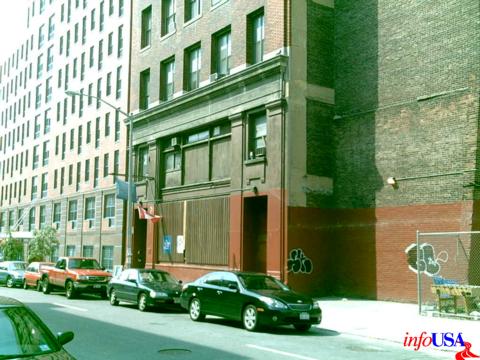 |
The Medicine Show Theatre in collaboration with Vox Novus is presenting a Composer's Voice concert performing the works of Noah Creshevsky and Robert Voisey. |
| The concert features world premieres of Creshevsky's composition Psalmus XXIII for voice and playback and I Wonder Who's Kissing Her Now for electronic playback. Also being performed is Creshevsky's Jubilate for voice and electronic playback, based on pre-recorded samples that incorporate the extraordinary vocal abilities of Thomas Buckner (available on the compact disc Hyperrealism, Mutable Music 17516). Also receiving their debuts are Nervous Energy for solo piano and Dos Palabras for voice and piano by Robert Voisey. Among the performers are Beth Griffith, Andrew Bolotowsky, Rachel Carter White, and Ashlee Mack. | |
| Title | Composers | Performers |
| Great Performances | Noah Creshevsky | Beth Griffith – soprano Andrew – flute and electronic playback |
| hunger | Robert Voisey | Beth Griffith – soprano and electronic playback |
| I Wonder Who's Kissing Her Now | Noah Creshevsky | electronic playback |
| Dos Palabras | Robert Voisey | Rachel Carter White - soprano and and David Rosenmeyer – piano |
| Psalmus XXIII | Noah Creshevsky | Beth Griffith - soprano electronic playback - vocal samples by Beth Griffith |
| Jubilate | Noah Creshevsky | Beth Griffith - soprano electronic playback - vocal samples by Thomas Buckner |
| Nervous Energy | Robert Voisey | Ashlee Mack – piano |
| Performers | |
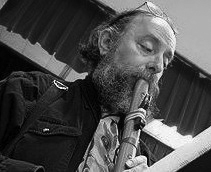 |
In 1957, Andrew Bolotowsky became a card carrying member of The Mickey Mouse Club. In 2000, Mr. Bolotowsky gained an entry level position with AARP. In the intervening years, he studied flute with Elaine Schaffer, William Kincaid, and Jean-Pierre Rampal. He performed in over 3,000 solo flute recitals and participated in countless chamber music and orchestral concerts. He has performed with The Pan American, Westchester Philharmonic and Brooklyn Philharmonic Orchestras. In the realm of chamber music, he has worked with Downtown Music Productions, Music Downtown, American Festival of Microtaoanl Music, SOHO Baroque Opera, Muse (Colonial American Music), The Delbarton Baroque Ensemble, The New Amsterdam Baroque Ensemble, Brooklyn Bardque, La Brillante, Woodhill Players, and Lenore Von Stein’s 1681. Mr. Bolotowsky has performed on the radio stations: WBAI, WNCN, WQXR, WNYC and TV stations: WNYC,NBC and CBS. He can be heard on the Internet in Jim Theobald’s work, Above Ground for flute and Electronic Tape. He has recorded for Orion, Opus I Station Hill and Golden Age Records, New Wilderness Cassettes and Frog Peak, 4Tay, Sonic Muse, XI, Stereo Society, C.R.I. and Newport Classic CDs, and New world Records |
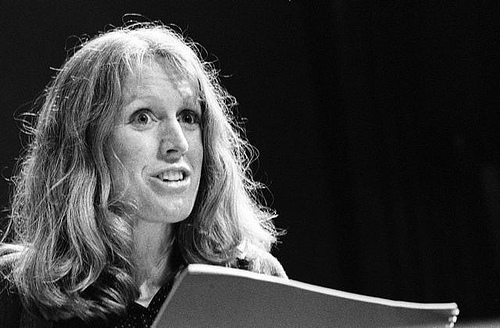 |
“An extraordinary American soprano, Beth Griffith sang with a focus and presence (as she did everything) that held a listener at rapt attention. Griffith, a Texan, recently returned to the United States after a 20-year career in Germany. It is our good fortune”
--Mark Swed Los Angeles Times
“A real highlight of the festival was the exceptional singer Beth Griffith... Her vocal artistry surpasses the conventional with an incredibly wide gamut of tonal and expressive articulation... All this seems to happen in a kind of mystical atmosphere brought about by the unique performance of Beth Griffith, as singer and as human being.” --Suzana Martinakova Literarny Tyzdennik Bratislava: “The piece that turned me to jelly, though, was A cappella, by John McGuire, recently resident in New York after decades in Cologne. With impassioned expressiveness, soprano Beth Griffith sang syncopated vowel sounds over a sparkling electronic background, medieval but vibrant in its contrapuntal austerity.” --Kyle Gann The Village Voice Since her European debut in Mauricio Kagel’s solo theater piece Phonophonie in 1978, the demand for Beth Griffth as soloist has taken her to such important music festivals as the Warsaw Autumn, Cologne Triennale, Wien Modern, Numus Festival, RIAC, Donaueschingen Musiktage, Darmstadt Summer Courses,Wittener Tage fur Neue Kammermusik, ISCM and New Music America. In addition, her acclaimed performance of Morton Feldman’s Three Voices has been heard on numerous stages from Prague, Berlin, London, New York and in between. Recent invitations led her to Grahamstown, South Africa, Gent, s-Hertogenbosch, Cologne, Wiesbaden, Raleigh, North Carolina and here in New York with repertoire ranging from chamber works by Sorrell Hays, Dieter Schnebel, Wolfgang von Schweinitz, Manos Tsangaris, solo works by John Cage, Alvin Curran, Morton Feldman, Noah Creshevsky, John McGuire, Mattricio Kagel and Rodney Waschka. |
 |
Specializing in contemporary music, pianist Ashlee Mack performs solo and chamber literature in recitals, masterclasses, and with new-music organizations such as The Society for Chromatic Art (New York, Princeton) and Vox Novus (New York, Brooklyn). She has recently performed works by Jackson Hill, James Romig, Edward Taylor, Robert Voisey, Orianna Webb, and Charles Wuorinen, and has given presentations at the College Music Society National Conference, Westminster Conservatory, and Northwestern University. Upcoming projects include first performances and recordings of piano sonatas by James Romig and Edward Taylor, and the premiere of Romig’s Double 4, with flutist John McMurtery, at The Juilliard School. Mack earned her undergraduate degree in piano performance at Bucknell University and was awarded the Barbara Watson Grever Prize in Music. While at Bucknell, she studied with Lois Svard and participated in masterclasses with Kevin Sharpe, Barry Snyder, and Paavali Jumpannen. In addition to maintaining a private piano studio, she serves as an accompanist in the Washington DC area and is concert coordinator for the Washington Conservatory of Music. She currently studies with Michael Adcock. |
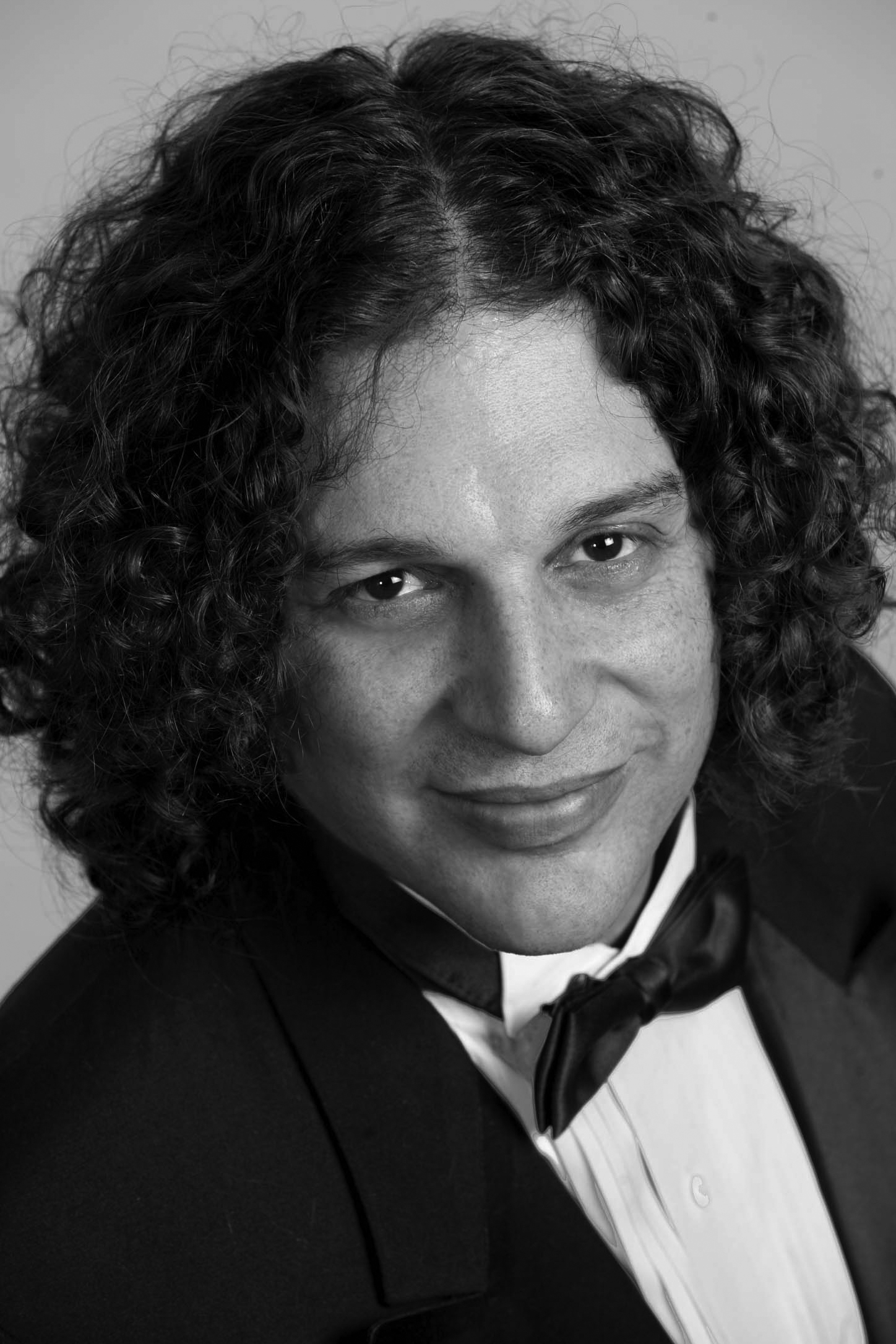 |
Born in Argentina, David Rosenmeyer began his studies in Israel, where he spent much of his childhood. After returning to Argentina, he graduated from the Orchestra Conducting Program at the UCA University and the Choral Conducting Program of Juan Jose Castro Conservatory of Music. In Buenos Aires, he studied piano with Susana Bonora. In 1995, he was awarded 1st Prize in the Argentine Ministry of Culture Conducting Competition, and in 1997, he won the 1st Prize in the National Congress of Argentina Conducting Competition. In 1996 and 2002, Mr. Rosenmeyer conducted the Orquesta Sinfónica Nacional of Argentina and appeared as a guest conductor with orchestras in Argentina, Brazil, and Chile. In May of 2002, he was music director and pianist for the world premiere of "The Sandman," an opera by Thomas Cabaniss directed by David Herskovits in a production by Target Margin Theater. He is the Music Director of the Bach Society of Columbia University and has lead the group in a variety of concerts that included coral and orchestral concerts, an evening dedicates to the music of Robert Cuckson and a staged version of Purcell’s Dido and Aeneas which he directed and conducted from the harpsichord. Mr. Rosenmeyer is Master’s degree at the Mannes College of Music, majoring in Conducting and Music Theory. |
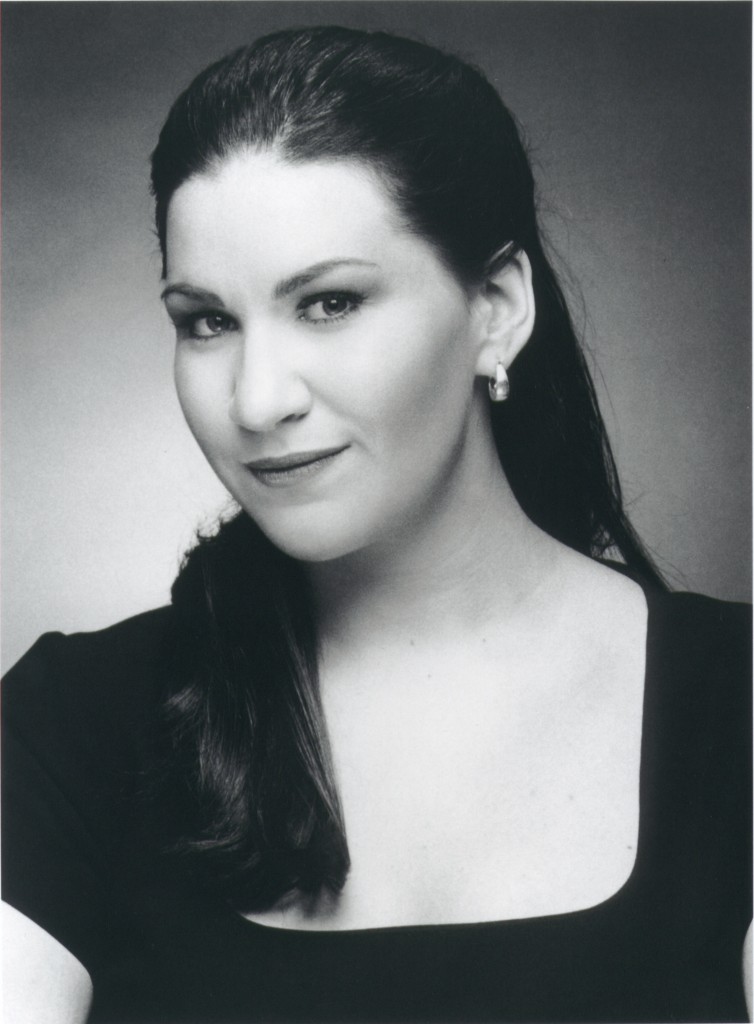 |
Rachel Carter Whate, soprano, made her stage debut as Little Bell in The Carol of Little Bell in her kindergarten Christmas Pageant. Other (more recent) roles include the Mother in Amahl and the Night Visitors, the Witch in Hansel and Gretel, Mame in Sweet Betsy from Pike, Columbine in The Little Harlequin, Ottavia in L’Incoronazione di Poppea, as well as various operatic scenes. Rachel played the role of Ecuba in the world stage premier of Bruno Rigacci’s opera of the same name. As a founding member of the Remarkable Theater Brigade, Rachel Carter performed the role of the Mother in Hansel and Gretel on Broadway and in outreach programs throughout New York. Ms. Carter received a Bachelor of Music degree from Manhattan School of Music and is currently pursuing her masters degree at Brooklyn College. A frequent recitalist, Ms. Carter has performed extensively in her native Virginia, North Carolina and New York, with works ranging from Bach to Birtwistle. Upcoming engagements include a recital of contemporary music at Brooklyn College (May 5), a performance of Andrea LaRose’s take out at the CUNY Grad Center Composer’s Concert (May 6), and the title role in Handel’s Alcina at the California Music Festival. |
| Composers | |
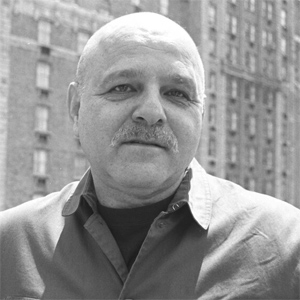 |
Noah Creshevsky |
|
"Imagine all the world's instruments, musicians and hemispheres lashed together into a giant mega-calliope, super-jukebox, or fantasmo-sampler. As called to action by a hyper-caffeinated virtuoso, it might sound something like these works by Noah Creshevsky."
--Arved Ashby, Gramophone
Hyperrealism is an electroacoustic musical language constructed from sounds that are found in our shared environment ("realism"), handled in ways that are somehow exaggerated or excessive ("hyper"). Fundamental to hyperrealism is the expansion of the sound palettes from which music is made. Developments in technology and transformations in social and economic realities have made it possible for composers to incorporate the sounds of the entire world into their music. Essential to the concept of hyperrealism is that its sounds are generally of natural origin, and that they remain sufficiently unprocessed so that their origin is perceived by the listener as being "natural." Since the sounds of our environment vary from year to year, generation to generation, and culture to culture, it is impossible to isolate a definitive encyclopedia of "natural" sounds, but there are a great many sounds that are familiar to nearly all of us. These are the most basic building blocks in the formation of a shared (if temporary) collective sonic reality. Hyperrealism celebrates bounty, either by the extravagant treatment of limited sound palettes or by assembling and manipulating substantially extended palettes. Trained in composition by Nadia Boulanger in Paris and Luciano Berio at Juilliard, Noah Creshevsky (b. 1945) is the former director of the Center for Computer Music and Professor Emeritus at Brooklyn College of the City University of New York. His musical vocabulary consists largely of familiar bits of words, songs, and instrumental music that are edited but rarely subjected to electronic processing. The result is a music that obscures the boundaries of real and imaginary ensembles though the fusion of opposites: music and noise, comprehensible and incomprehensible vocal sources, human and superhuman vocal and instrumental capacities. Creshevsky's most recent compositions explore the fragmentation and reconstruction of pre-existing music in combination with original synthetic and acoustic materials. Moments suggest musical environments of indeterminate ethnicity--simultaneously Western and non-Western, ancient and modern, familiar and unfamiliar "Creshevsky is as much a virtuoso of the sampler as anyone working in the field. But instead of using it for mere technical effects, he turns it into a tool of the imagination, creating impossible ensembles from some parallel universe. His sampler is a means toward not only superhuman virtuosity, but a new universality." --Kyle Gann, Village Voice |
|
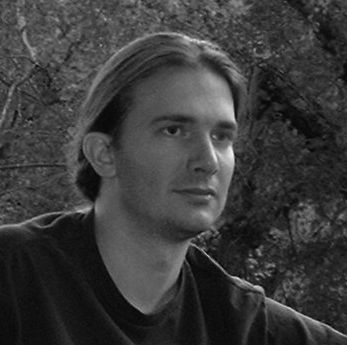 |
Robert Voisey |
|
"Robert Voisey composes music as a natural part of his life"
- Noah Creshevsky
This year Robert Voisey has received airplay of his recent album "Dark Desert" broadcasted on the "Kalvos and Damian" radio show. He has also recently had U.S. premier of his arrangement of Music in Motion for soprano and violin in New York City. In conjunction with the European debut of the 60x60 project, he received debuts of his work hunger, Lullaby, and run rabbit run as a portrait of his work at the National University of Music in Bucharest, Romania. Voisey's compositions stark and tainted tree were also featured in the play Dedalus, a stage production in New York City. Last year Voisey had airplay of his composition Base, a movement of hourglass on "Foldover" radio show in Oberlin Ohio. He received debuts of that same work in Bucharest in a concert exposing U.S. Electronic composers in a concert dedicated to "Thanksgiving Day." Base, was featured on the C.U.N.Y. at Brooklyn College's Electro Acoustic Compact Disc, BCMix. In 2003 Voisey received the debut of his arrangement Music in Motion for Soprano and Violin in Worpswede, Germany, and Brooklyn, New York. His chamber work Candlesticks: tombstones for the living, frigid piggy, In the Playground of Colors, run rabbit run "…a tour de force." - Leonard J. Lehrman, tainted tree, and his electronic work lust, thirst have all received their debuts in New York City with the "Composer's Voice" concert series. Voisey also received his debut of Tears of Dew in Birmingham Alabama at the Artburst festival. After receiving his B.A. from S.U.N.Y. Stony Brook where he was studying Computer Science Engineering, Mathematics, Studio Art and Music Performance, Robert Voisey started his composition career in the Upper Galilee of Israel, at the College of Tel Hai. There he studied composition with Oded Zehavi and Aiten Schteinberg and composed his first chamber compositions such as taint for solo, "… a work of great presence… is a fascinating study of modulating note values, pitches, stop clicks and beautifully integrated melodic lines." - John de Clef Pineiro, New Music Connoisseur (March 2003 Vol.11 No.1); and "his post-romantic, Tears of Dew for cello and piano, (where) New Yorker Robert Voisey drew inspiration from Middle Eastern modes." - Michael Huebner, the Birmingham News, Birmingham, Alabama (August 2003) He returned to the United States to study at C.U.N.Y. Brooklyn College where he studied composition with Noah Creshevsky. "Voisey has developed an original and versatile system of interlocking, modulating modes that blend elements of eastern and western musical processes. The resulting compositions reflect a wonderful merging of spontaneous energy and disciplined technique." - Noah Creshevsky, former director of the Center for Computer Music and Professor Emeritus at City University of New York at Brooklyn College. | |
|
The mission of Vox Novus is to promote contemporary composers and their music Vox Novus believes strongly in the intrinsic value of contemporary music, recognizing it as a force in the advancement of culture and art. We help keep it alive through the promotion and dissemination of the music of contemporary composers. Our goal is to broaden the channels of new music between composer and public, providing greater exposure to new music. New music has always been stigmatized, yet all musical masterpieces at one time were considered new music. Vox Novus understands that without the creation of challenging, contemporary music there will be no future masterpieces to reflect our time. Exciting new works of art are coming forth constantly, and must be heard in order for the cycle of creativity to be complete. Vox Novus gets the music heard: in concerts, over the radio, on CD’s, and on the Internet. While throughout the ages artists have struggled to create their art, one may argue that artists have never been more precarious than they are now. Today’s economic climate is competitive, and emerging composers inevitably act as their own writer, producer, publicist, agent, and sometimes performer. This is a daunting array of tasks, one that unfortunately crushes the attempts of many composers who are simply not adjusted to the present environment. Vox Novus empowers the composer to promote, expand, and advance their career. Perceiving that the most important corollary to a completed work is a performance, Vox Novus generates concerts. In these concerts we develop audiences that include yet extend beyond the bounds of the musical community, broadening the audience base by familiarizing it with certain works in repeat performances, while continuously integrating new composers into the repertoire. Vox Novus helps to fill the many roles required to promote and produce contemporary music while simultaneously teaching composers how to do it themselves. We accomplish this by providing the composer with a web page, putting on Composer’s Voice concerts, and encouraging composers to create and foster audiences. Vox Novus publicizes concerts with e-mail announcements, postings on the web, mailings, flyers and word of mouth communication. At our Composer’s Voice concerts, we encourage communication and feedback through formatted discussion between composer and audience, and also through commentary cards. This provides the composer with important insight into their work and gives the audience a feeling of power and a relation to contemporary music. Vox Novus takes a creative approach to the problem of joining the audience and composer of electronic music. This is the 60x60 project, an annual concert event featuring 60 seconds of electronic music by 60 different composers, creating a CD as the material and product of the concert. In this way composers gain a maximum degree of exposure while audiences enjoy a highly interesting and palatable product. The project was inaugurated in 2003. In the future Vox Novus aims to incorporate visual artists, thereby making this a multi-media event and broadening the audience base by cross-pollinating with other artistic mediums. The Website is another important vehicle in the promotion of contemporary music. Since 2000, our website had provided over 100 composers and musicians with a place on the web, a vital tool of survival in the modern day. This allows composers and musicians to post their bios, list of works including bandwidth for listening and down-loading, availability, publish scores, and advertise their up-coming Vox Novus concerts. With our website attracting over 300 visitors a day, our Composer’s Voice concerts running throughout the concert seasons, and our annual electronic concert, 60x60, gaining increasing momentum, we at Vox Novus work hard to promote contemporary music. Our heart lies in the music. |
| Brought to you by | |||
 |
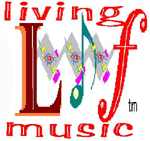 |
||
| Funding by | |||
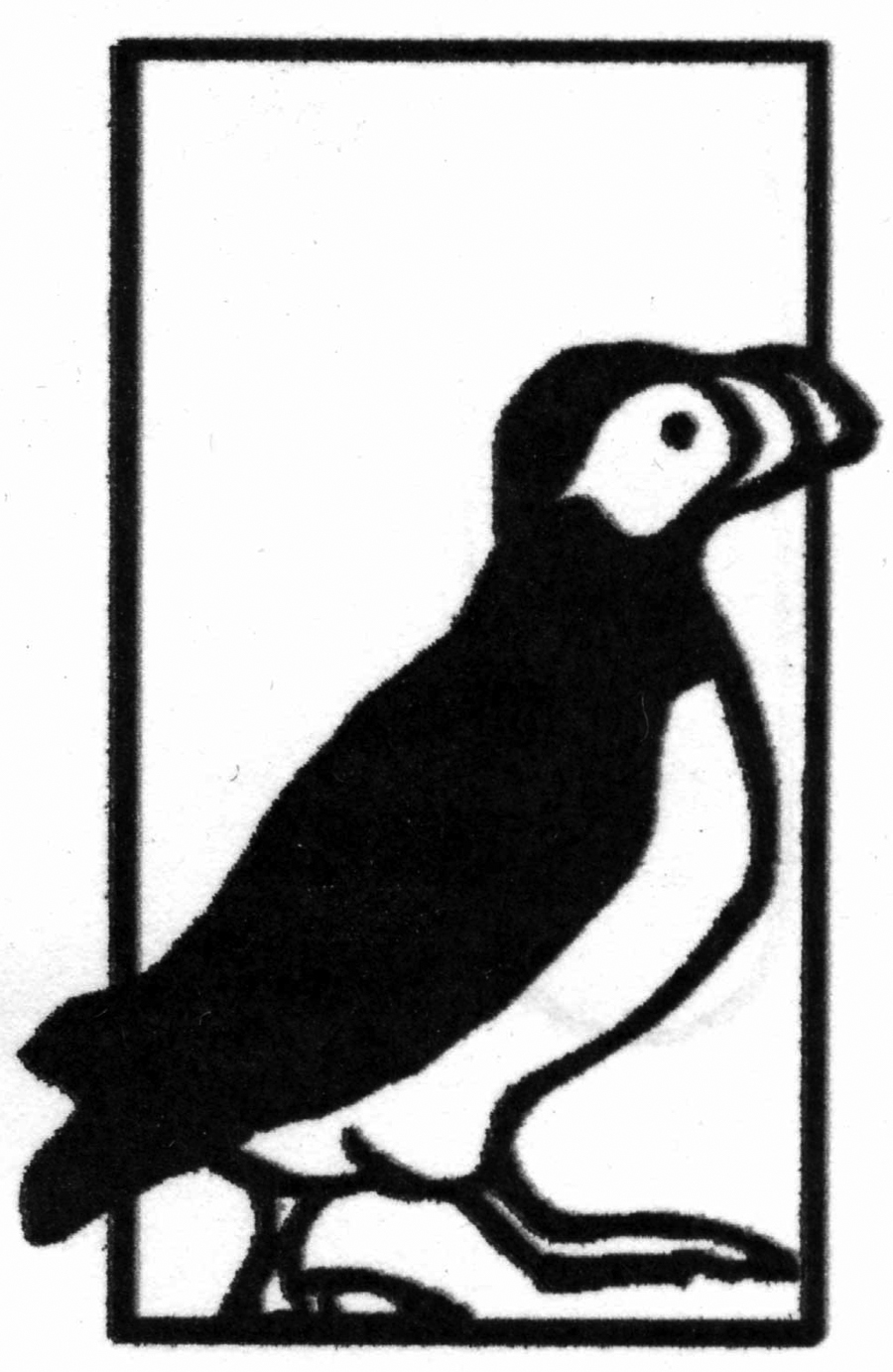 |
|||
| Funding also provided by the Puffin Foundation, "...continuing the dialogue between art and lives of ordinary people." | |||
| Home | ||||||||||||
| Calendar | ||||||||||||
| History | ||||||||||||
| Opportunities | ||||||||||||
| Vox Novus | ||||||||||||
| Site Map | ||||||||||||
| Contact | ||||||||||||
| Hosted by Malted/Media and Kalvos & Damian's New Music Bazaar | ||||||||||||
![[ Vox Novus - the new voice for contemporary music ]](http://www.voxnovus.com/img/Vox_Novus_Logo_black.png) | ||||||||||||
![[ Composer's Voice ]](http://www.voxnovus.com/img/Composers_Voice_Collaboration_Logo.png) | ||||||||||||